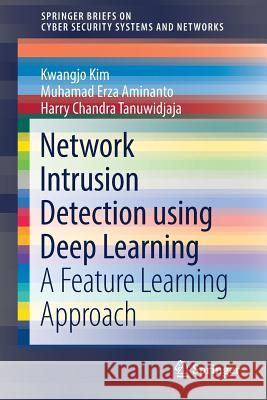Network Intrusion Detection Using Deep Learning: A Feature Learning Approach » książka
topmenu
Network Intrusion Detection Using Deep Learning: A Feature Learning Approach
ISBN-13: 9789811314438 / Angielski / Miękka / 2018 / 79 str.
Kategorie:
Kategorie BISAC:
Wydawca:
Springer
Seria wydawnicza:
Język:
Angielski
ISBN-13:
9789811314438
Rok wydania:
2018
Wydanie:
2018
Ilość stron:
79
Waga:
0.15 kg
Wymiary:
23.39 x 15.6 x 0.53
Oprawa:
Miękka
Wolumenów:
01
Dodatkowe informacje:
Wydanie ilustrowane











